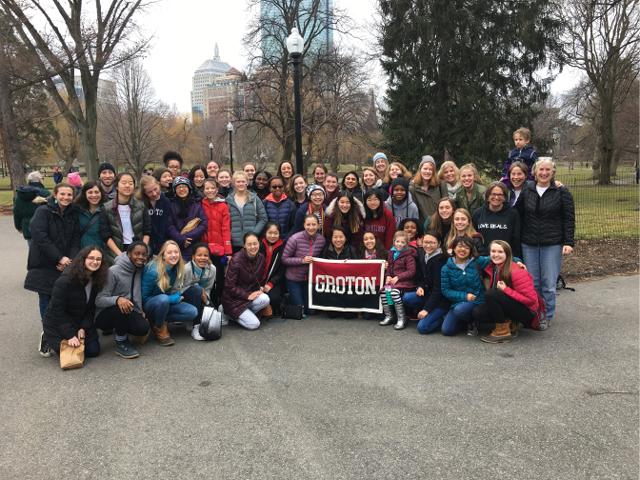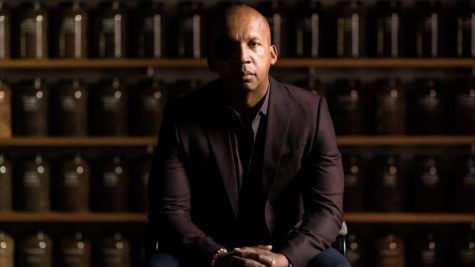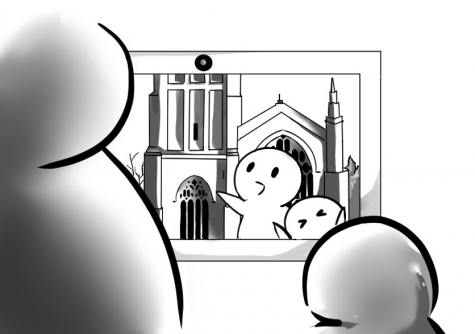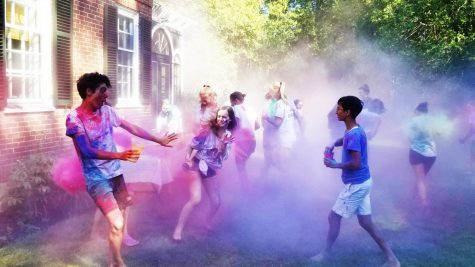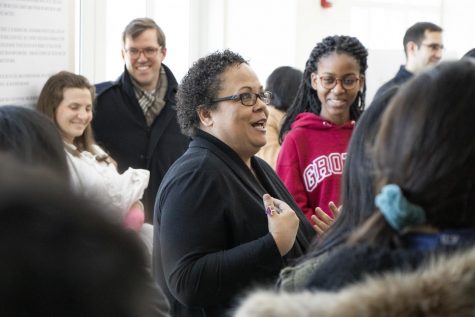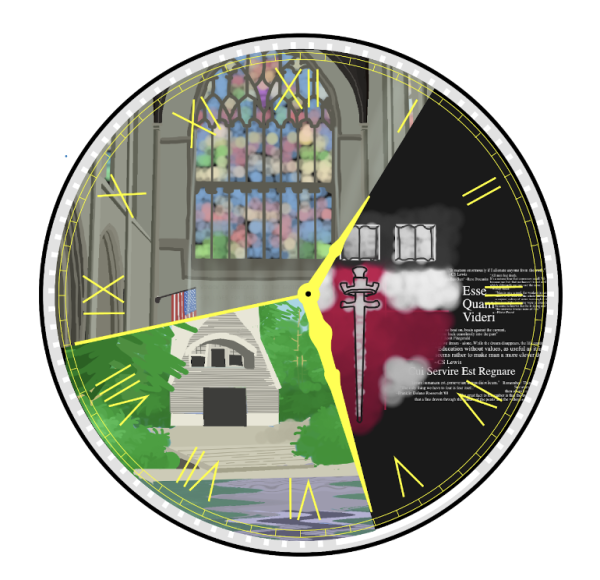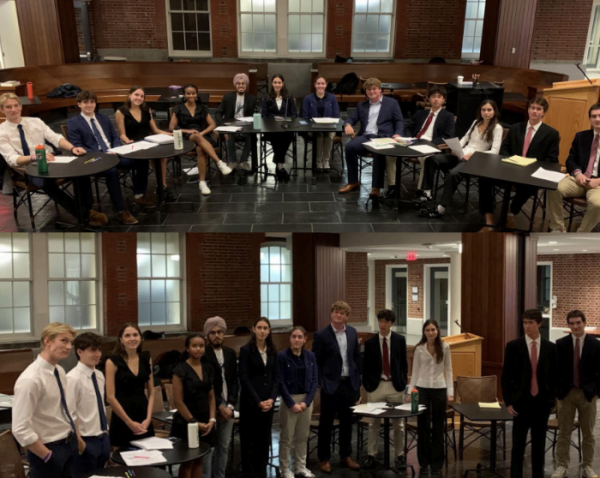Groton joins Boston Women’s March
Grotonians pose for a picture in Boston Common.
In President Trump’s inauguration speech he stated, “Today we are not merely transferring power from one administration to another… but we are transferring power from Washington, D.C. and giving it back to you, the American people.” The following day, January 21st, fifty one students and faculty from Groton joined almost two-hundred thousand women in the Boston Women’s March for America. Their concern? That half of these “American people” might see their rights taken away under Trump’s administration.
Upon hearing of this march, Ms. Dennison contacted the Groton Girls Alliance (GGA) heads and some other helpers to organize Groton’s attendance. She explained her process: “Back in November, when the Women’s March in DC was first announced, Ms. Sales, Ms. Harlan, Ms. Sen-Das and I got together to discuss the possibility of taking a group of students down to Washington to participate in that march. While we were contemplating the complicated logistics of taking a group to DC, we learned about the sister march in Boston – much easier! We thought it would be a wonderful opportunity to engage students in an event of this importance and magnitude.”
Once it became apparent that there was significant interest, she hired a bus and her student advocates started recruiting. GGA Head Blair Donahue ’18 said, “I had no idea what I was getting myself into when Ms. Dennison asked for help organizing the march, but I’m so glad she did… It was so important for students to go. Sometimes we need to leave the Circle to appreciate the ‘real world.’”
When the day finally came, participants woke up early with millions of marchers across the world and got on a bus headed to Boston Common. Upon arrival, they were greeted with the sight of the March’s signature pink hats on the heads of the famous Make Way for Ducklings statues. Groton arrived almost an hour early, ensuring prime spots in the crowd, closest to the stage. As the crowd started to file in after, people were compressed shoulder to shoulder, far exceeding the turnout organizers expected. Sophie Park ’19 commented, “It was crowded and busy and probably a logistical nightmare, but people made an effort to gather together and cooperate with each other, and I think that’s important.”
The Boston Women’s March for America was organized jointly with hundreds of marches happening simultaneously across the US and the world, most notably the Women’s March on Washington, which attracted half a million participants. The March’s stated mission was to stand in solidarity with what organizers called the “hate, intolerance and acts of violence” perpetrated against several minority groups throughout the nation.
Headlining speakers of the morning were Boston Mayor Marty Walsh and Massachusetts Senator Elizabeth Warren, along with many others, including representatives for organizations such Planned Parenthood, Boston Women’s Fund, Massachusetts’ ACLU chapter, and the NAACP. While the march was marketed not as a protest, but a demonstration, much of the discussion and many of the signs addressed the new president.
Senator Warren, a longtime critic of Trump, said, “Yesterday, Donald Trump was sworn in as president. That sight is now burned into my eyes forever.” Her message was one of fighting back and uniting: “We come here… to make clear: We are here! We will not be silent! We will not play dead! We will fight for what we believe in!… We believe that sexism, racism, homophobia, and bigotry have no place in this country… Black lives matter; diversity makes our country stronger. We believe that equal means equal and that’s true in the workplace, it’s true in marriage, it’s true every place.”
Mayor Marty Walsh made a promise to the people of Massachusetts: “We’re going to be the first state in the country to fight back on Washington when they start to go after different things that affect so many different people. We’re going to stand up. We will fight… to let the president know that he’s supposed to represent all of us. He doesn’t have to make America great again, America is great… because of all of us.”
Groton students and faculty among the swarms of activists were moved by the speakers. “I thought the march was incredible. It represented unity and responsibility in America. The fact that so many people marched in Boston and around the world demonstrates how passionate people are about equality; and it was an honor to be part of that,” described Fran Saldivar ’19. Macy Lipkin also commented, “I am so proud to be from Boston… I did a lot of screaming… Even when my feet started to ache and the mob didn’t seem to be moving, I wanted to be nowhere else.” She is referring to the march section of the program itself, which became a logistical complication due to the attendance far exceeding that which was expected by event organizers. It took some two hours to just get out of the common and onto the street. But alas, Groton students and faculty remained positive: “It was great to see so many people cared enough to come out in support of their beliefs. It was very empowering,” said Tilly Brooks ’19.
Activists flooded the streets with signs addressing Donald Trump. Other signs were for women’s rights, racial equality, and most commonly: love. Chants rang through the streets such as “My Body, My Choice” and “Love, Not Hate, Makes America Great.” Among these were Groton students and faculty, sending the message, to quote Langston Hughes, “I, too, am America.” Ms. Sen-Das remarked on the poignancy of the experience: “The march was energizing and invigorating; it was a salutary reminder of the importance of staying informed and engaged, most of all, it was a wonderful experience going with a large group of students and adults to an uplifting and optimistic event.”
Organizing students onto the bus back to school, Ms. Dennison reiterated the words of Eleanor Roosevelt that Massachusetts Attorney General Maura Healey had repeated early that day: “It’s better to light a candle than curse against the darkness.” Healey had continued, “I imagine we’ll be doing a lot of cursing of the next several months, but let’s light that candle, and let’s bring the heat.”

Lily Cratsley '19 is very excited to step into the role of Editor-in-Chief of the Circle Voice. Since fourth form she has been a consistent contributor, writing for...


